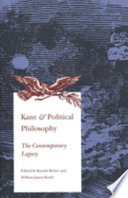 | Lewis White Beck - 1966 - 332 sider
...examine wherein its essence consists; or by what motions of our spirits or alterations of our bodies we come to have any sensation by our organs, or any ideas...formation, any or all of them, depend on matter or not. These are speculations which, however curious and entertaining, I shall decline, as lying out... | |
 | John W. Yolton - 1977 - 364 sider
...examine, wherein its essence consists, or by what motions of our spirits, or alterations of our bodies, we come to have any sensation by our organs, or any ideas...formation, any, or all of them, depend on matter or no." However, he is forced to resort to the physical and physiological account from time to time in the... | |
 | Richard Lowry - 1971 - 258 sider
...consists: or by what motions of our spirits, or alterations of our bodies, we come to have any sensations by our organs, or any ideas in our understandings;...formation, any or all of them, depend on matter or no. These are speculations which, however curious or entertaining, I shall decline, as lying out of my... | |
 | Peter Alexander - 1985 - 362 sider
...examine, wherein its Essence consists, or by what Motions of our Spirits, or Alterations of our Bodies, we come to have any Sensation by our Organs, or any Ideas...Formation, any, or all of them, depend on Matter, or no. (Ii1) That is, he is leaving to the natural philosophers the task of examining the physical mechanisms... | |
 | Beryl E. McKenzie, Ross Henry Day - 1987 - 320 sider
...examine wherein its essence consists or by what motions of our spirits, or alterations of our bodies, we come to have any sensation by our organs, or any ideas...formation, any or all of them, depend on matter or not. (Locke, 1690; cited in Burtt, 1939, p. 244) Locke's words suggest that while he discussed the... | |
 | Ronald Beiner, William James Booth - 1993 - 398 sider
...examine wherein its essence consists; or by what motions of our spirits or alterations of our bodies we come to have any sensation by our organs, or any ideas...formation, any or all of them, depend on matter or not." These speculations lie outside the design of the essay, whose purpose is "to inquire into the... | |
 | Vere Claiborne Chappell - 1994 - 354 sider
...won't "meddle" with such questions as by what Motions of our Spirits, or Alterations of our Bodies, we come to have any Sensation by our Organs, or any Ideas...Formation, any, or all of them, depend on Matter or no. (E Ii2: 43) He seems not really to be agnostic about whether ideas of sensation depend purely on bodily... | |
 | Leen Spruit - 1994 - 618 sider
...physical and physiological side, that is: by what Motions of our Spirits, or Alterations of our Bodies, we come to have any Sensation by our Organs, or any Ideas...Formation, any, or all of them, depend on Matter, or no. 124 A crucial aspect of Locke's historical and plain method was to accept facts of the matter for what... | |
 | Daniel N. Robinson - 1995 - 390 sider
...examine wherein its essence consist or by what motions of our spirits, or alterations of our bodies, we come to have any sensation by our organs, or any ideas in our understanding; and whether those ideas do, in their formation, any or all of them, depend on matter... | |
 | Joyce Oldham Appleby - 1996 - 578 sider
...examine wherein its essence consists, or by what motions of our spirits, or alterations of our bodies, we come to have any sensation by our organs, or any ideas...formation, any, or all of them, depend on matter or no: these are speculations, which, however curious and entertaining, I shall decline, as lying, Hayes and... | |
| |